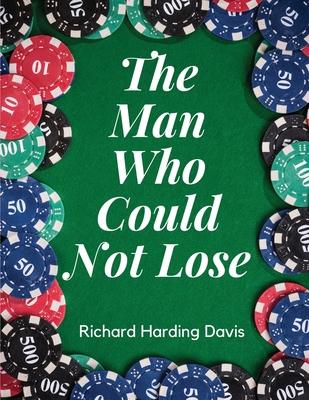"The Man Who Could Not Lose" is a short story by Richard Harding Davis, an American journalist and writer known for his adventure stories and his coverage of conflicts such as the Spanish-American War. The story was first published in 1896.
The plot revolves around a young man named Dicky Westfield who possesses an uncanny ability to always come out ahead in gambling. He seems to have an innate sense of luck that ensures his success at cards, races, and other forms of betting. His streak of good fortune becomes legendary among his peers, earning him the nickname "The Man Who Could Not Lose."
Despite his remarkable luck, Dicky becomes increasingly bored with his predictable victories. He craves excitement and challenges that go beyond mere gambling. One day, he receives an invitation to participate in a high-stakes card game hosted by a wealthy and mysterious gentleman. Dicky eagerly accepts the invitation, hoping that this game will finally provide him with the thrill he seeks.
As the game unfolds, Dicky finds himself facing opponents who are equally skilled and determined to win. For the first time, he begins to doubt his ability to emerge victorious. However, his competitive spirit refuses to waver, and he resolves to do whatever it takes to win, even if it means taking risks he never thought possible.
The story explores themes of luck, risk-taking, and the pursuit of excitement. It raises questions about the nature of success and whether it is determined by chance or skill. Through Dicky’s journey, Richard Harding Davis invites readers to contemplate the limits of luck and the consequences of relying too heavily on it.










